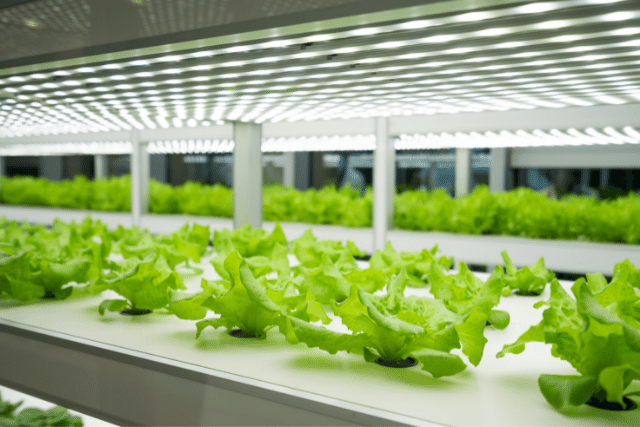
Fresh Local Vegetables from Farms straight to your doorstep with SGWetmarket
Singapore has a rich culture when it comes to food. It is associated with different cultured cuisine from China, India, Malaysia, and some Western countries. Singapore is proud of its food due to its unique culture and rich history. In addition, Singaporeans also use different vegetables that make each cuisine unique and delicious, thanks to the farms and wet markets that offer fresh and quality vegetables. Let us explore the different farms and wet markets that provide locals and tourists convenience, freshness, and quality vegetables.
Vegetables are the edible parts of plants and are often classified according to their edible parts, such as leaves (lettuce), stems (celery), roots (carrot), tubers (potato), bulbs (onion), and flowers (broccoli).
It is proven the nutrients given by vegetables to people. As many types of vegetables are being produced, there are different benefits given to people, especially regarding health. Individuals who consume more vegetables and fruits as part of a balanced diet are likely to have a lower risk of developing certain chronic illnesses. Vegetables include nutrients that are necessary for your body's health and upkeep.
In addition, Vegetables give nutrients such as potassium, dietary fiber, vitamin A - keeps eye and skin healthy, and vitamin C - helps heal cuts and wounds and keep teeth healthy; it also helps to lower blood pressure, reduce blood cholesterol levels, and may lower risk of heart disease. Vegetables have provided people with options to make their bodies stronger and healthier.
While diversifying Singapore's import sources has benefited them, COVID-19 emphasizes the critical role of domestic production in providing a backup supply if their import sources are interrupted. The Singapore Food Agency (SFA) has set an ambitious aim of producing 30% of its nutritional requirements locally by 2030. The 30by30 includes agricultural land target, which must be achieved within Singapore's land limits of less al land.
The data from SFA accounts that Singapore produced 12,700 tonnes of leafy vegetables in the market with 14% consumption of the people. Some locally produced vegetables are Basil, Bean sprouts, Cai Xin (Chinese flowering cabbage), Kale, Kang Kong, Lady's Fingers, Lettuce, Pea sprouts, Spinach, and Xiao Bai Cai. Moreover, thereof the 220 farms produced the vegetables mentioned above.
A farm is an area of land and structures used for cultivating crops and raising livestock, often controlled by a single owner or manager. Farms in Singapore are positioned within 60 minutes of the city center to reduce the food supply chain and ensure that clients get their greens in a minute. Thesmartlocal.com list some of the urban farms in Singapore that cultivate vegetables:
- Artisan Green – indoor farm using hydroponics
Artisan Green is situated in a laboratory with precisely regulated temperature settings and LED lighting to ensure the healthiest possible vegetable growth. Hydroponics is a method of growing vegetables in mineralized water rather than soil — the farm consumes 90% less water than traditional soil-based farms.
- Pacific Agro Farm
Visitors to the Pacific Agro Farm will observe crops ranging from cherry tomatoes to eggplants and basil. Additionally, visitors will work on creating their hydroponic system for home use and how to prepare their potting mix using coffee powder and coconut husk shavings. The farm would always send them home with a complimentary box of cherry tomatoes.
- Bollywood Veggies – with culinary school, museum, and farm-to-table bistro
Bollywood vegetables began in 2000 and have since extended their services to include the culinary, museum, and restaurants, where the plants cultivated are utilized in the recipes. The farm has hundreds of food plants such as sweet potato, tapioca, and pumpkin. Visitors may also try to grow rice as part of the Plant the Paddy program. Following that, visitors may wander the museum to learn about how food has developed through time, and when they're hungry, they can stop by the Poison Ivy Bistro for farm-to-table fares like nasi lemak hand-crafted sweets and fresh bread prepared with herbs from the garden.
- Sky Greens – world's first low vertical carbon farm with 9M shelves
Sky Greens is a farm with shelves of green plants standing at over 9M tall. This high-tech farm is the world's first low carbon, hydraulic-driven vertical farm and has received several honors.
- Citizen Farm – hires those with intellectual
This farm provides leafy greens, microgreens, mushrooms, and herbs for 3-4 meals per week for two people – all from the farm straight to one's doorstep if one subscribed to their boxes. In addition, the farm collaborates with the Autism Resource Centre and the Down Syndrome Association of Singapore to give employment to persons with intellectual disabilities.
- Hydro Urban – pesticide-free farming
Hydro Urban relies entirely on solar energy, water, and natural nutrient molecules, with no pesticides.
- Comcrop – organic rooftop farm
Singapore's only rooftop garden for commercial purposes. On the first Saturday of each month, the organic farm offers free tours to public members interested in learning more about urban farming, including their innovative use of space and hydroponics technology.
- Quan Fa Organic Farm – Japanese pesticide-free farming technique with no GMOs
To combat pest infestations on this farm, they use a Japanese approach, including nutrient-dense organic detritus. Additionally, none of the plants in this area are genetically engineered.
Whether rural or urban, the farm produces may be sold through supermarkets and the Wet markets of Singapore. Just like the SGWetmarket.
One of SGWetMarket's goals is to bring fresh, high-quality items from Singapore's wet markets. They now provide vegetables, meat, seafood, fruits, and dry items to both residents and visitors in Singapore. In almost 34 years on the market, they have produced several items for the community.
With SGWetmarket, this business has provided local and international customers with quality and fresh produce right at their doorstep. In addition, SGWetmarket is sourcing for the best quality market produce at affordable prices to benefit their customers from different races in Singapore, thereby promoting the local farmers of Singapore.
Buying locally farmed produce benefits one's health, the environment, and other aspects of one's life. Local food is frequently fresher, has more nutrients, has a longer shelf life, and has a lower carbon footprint due to shorter transit distances. Buying local means eating safe and high-quality vegetables since the Singapore Food Agency licenses farms.
SGWetmarket stalls that has been operating for more than 13 years. SGWetMarket provides next-day vegetables, meat, seafood, fish, and fruits delivery services in Singapore. They have a wide variety of choices with over 250 vegetables, meat, seafood, fish, and fruits choices that are available all day on our website. As all of their freshes produce is being picked and delivered on the same day, shopping for fresh produce has never been so easy. Their friendly customer service team is eager to assist with all your shopping needs.
Moreover, SGWetmarket's online delivery existence has transformed how consumers do their grocery shopping. Visit https://www.sgwetmarket.com.sg for your online fresh groceries needs!
